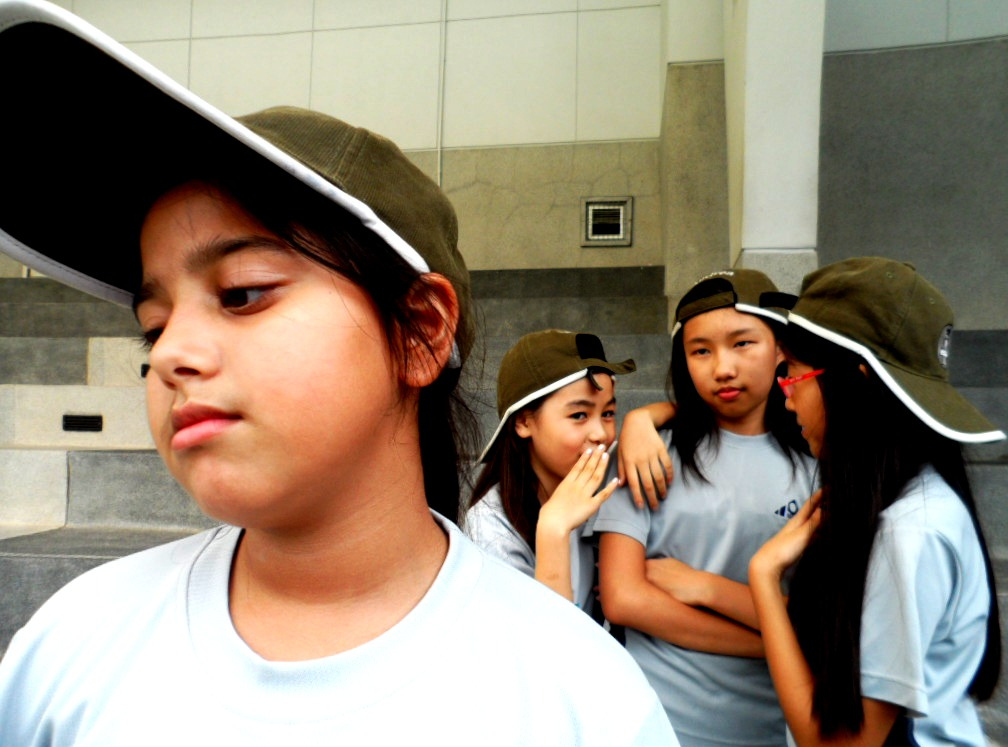In our previous article, we already covered the dangerous adverse effects and addictive properties of Adderall and Vyvanse, two psychostimulant amphetamine derivatives used to treat attention-deficit/hyperactivity disorder (ADHD) and narcolepsy. ADHD medications such as Adderall, Concerta and Ritalin are usually prescribed for teenagers, and this condition is often associated with other more serious diseases such as Tourette syndrome. However, a new study published in the Journal of Pediatric Psychology found that the dangers associated with these medications could be even more concerning than we suspected so far.

Youths using Adderall and Ritalin to treat ADHD are twice as likely to became victims of bullying and aggressions than other teens who do not take these medications. Researchers also pointed out that the risk of becoming a target of aggression and taunting further increases if the adolescent trades, sells or gives away his drugs. Although teenagers who are suffering from ADHD still get bullied more than their sane peers, the risk of victimization seems to be directly linked to the prescriptions themselves. The study was led by Dr. Quyen Epstein-Ngo, Ph.D., a research assistant professor at the Institute for Research on Women and Gender at the University of Michigan.
“I think it is fair to say that bullying is a potential risk that’s associated with stimulant treatment for ADHD,” explained Dr. Epstein-Ngo, who also speculated that “they may be putting themselves into riskier situations where they are more likely to be victimized.” Selling or trading their drugs may, in fact, expose them to dangerous situations and to criminally-inclined individuals as well, who can easily take advantage of their perceived superiority to get their medications. The study findings showed that youths suffering from ADHD who sold, traded or shared their meds risked victimization 4.5 times more than kids without ADHD, and five times more than teens with ADHD without a recent stimulant prescription.
“We’ve factored out that ADHD kids may have more difficulties with peer relationships and that might lead to bullying,” continued Epstein-Ngo. “We’ve factored out that some kids may have more severe symptoms, and that may lead to bullying, and we’ve also factored out the fact that some kids may have additional problem behaviors.” The study showed that almost 20% of the nearly 5,000 public schools students examined were at some point approached to sell or share their medications. It seems that bullying is a precise strategy employed by local drug dealers who want to stimulate their own economy. More often than less, those same drug dealers are just other young students who want to use these medications to boost their athletic or school performance.
However, in a previous interview Linda Cottler, chair of the epidemiology department at the University of Florida suggested that the reasons behind bullying against children suffering from ADHD could be different. “They are not being stigmatized because they have ADHD and use meds,” explained Cottler, “they may have behaviors that other kids are not tolerant of.” Dr. Wendy Moyal, a child and adolescent psychologist at the New York Child Mind Institute instead, suggested that those kids may actually use their medications as some form of “social currency” to help them improve their disadvantaged position. By providing their more criminally-inclined counterparts something they can use or re-sell for their profit, they hope to gain some favor that can lift their standing among their peers.
Other researchers suggested that youths with ADHD should be more closely controlled by their parents, as even though they may live normal lives just like other adolescents, they are much more vulnerable to criminal aggressions than their peers. Just like diabetic kids who cannot properly manage their insulin, it has been suggested that their medications should be given to the nurse, instead of leaving it unprotected on their backpacks. It should be noted that not only the chance of being ripped off their meds can have serious psychological consequences, but it also deprives them of their much-needed pills to treat their condition. Bullying can impact negatively kids for the rest of their life. One of the ways to overcome the trauma of being bullied is to do EMDR therapy online.
The article was written by Dr. Claudio Butticè, PharmD.
REFERENCES
- CBS News. K. Pallarito, Healthday November 20, 2015. “Teens who take ADHD meds are bullied more”. http://www.cbsnews.com/news/teens-on-adhd-meds-are-bullied-more/
- Epstein-Ngo QM, McCabe SE2 Veliz PT, Stoddard SA, Austic EA, Boyd CJ. “Diversion of ADHD Stimulants and Victimization Among Adolescents.” J Pediatr Psychol. 2015 Nov 19. pii: jsv105
Be the first to comment on "Bullying and medications. Taking ADHD pills makes kids victims?"